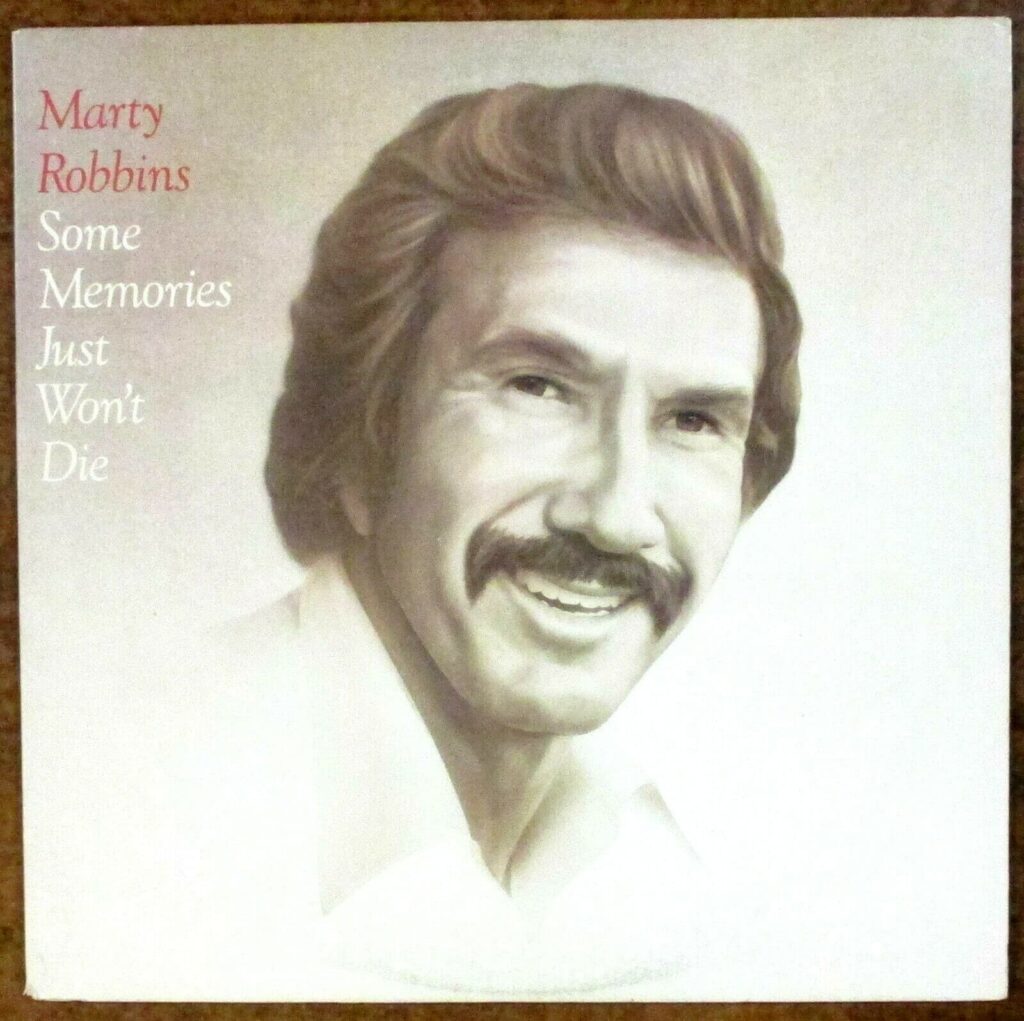
The Swan Song’s Tenacious Echo: When Love’s Phantom Refuses to Fade
There are certain songs that, the moment the first gentle chords float into the air, carry an almost unbearable weight of nostalgia and poignancy. For fans of the incomparable Marty Robbins, the 1982 single “Some Memories Just Won’t Die” is unquestionably one of them. This wasn’t merely a successful record; it was, tragically, the last major hit to chart during Marty Robbins’ lifetime, imbuing it with a profound, almost prophetic resonance.
Released in April 1982, the song became the lead single from his album Come Back to Me. In an incredible testament to the enduring power of his talent, “Some Memories Just Won’t Die” climbed all the way to Number 10 on the prestigious Billboard Hot Country Singles chart, marking his first Top 10 success in over four years. Even more remarkably, it soared to the Number 1 spot on the RPM Country Tracks chart in Canada. It was a late-career resurgence, so significant that Billboard honored him with their Artist Resurgence Award that year.
But the song’s story does not end there. Marty Robbins passed away suddenly in December 1982, leaving the country music world in mourning. Just six months later, in June 1983, his peers and fans gave the song a final, heartbreaking tribute: “Some Memories Just Won’t Die” was named Single of the Year at the 17th annual Music City News Country Awards. It was a posthumous honor that cemented the track’s place as his final, beautiful curtain call.
While Marty Robbins was famous for his own compositions, particularly the sweeping, cinematic ballads like “El Paso,” this particular gem was written by Bobby Lee Springfield, and it fit Robbins’ mature, world-weary voice like a favourite, worn-in leather jacket. The meaning is devastatingly simple and universally understood: a man is trying his best to move on after a great love has ended, yet the images, the emotions, and the echoes of that past relationship simply refuse to be extinguished. The lyrics speak not of a fiery, dramatic passion, but of the quiet, insidious persistence of memory—the way a scent, a turn of phrase, or a familiar place can instantly transport you back to a love you thought you had buried.
For listeners of a certain age, who have navigated their own decades of relationships, partings, and the wistful clarity that comes with time, this song doesn’t just entertain; it validates. It captures that moment when you realize that some loves don’t truly end; they simply become a permanent fixture in the landscape of your mind. Hearing Marty Robbins sing these words—a voice that had spanned rockabilly cool, Western grandeur, and pure country heartbreak—just before his untimely death, is to experience a double layer of melancholy. We are left with the memory of the legend himself, whose voice, like the memories in the song, just won’t die. It’s a perfect, bittersweet piece of classic Country, a testament to the fact that even the greatest storytellers sometimes have their most profound truths handed to them on a silver platter.